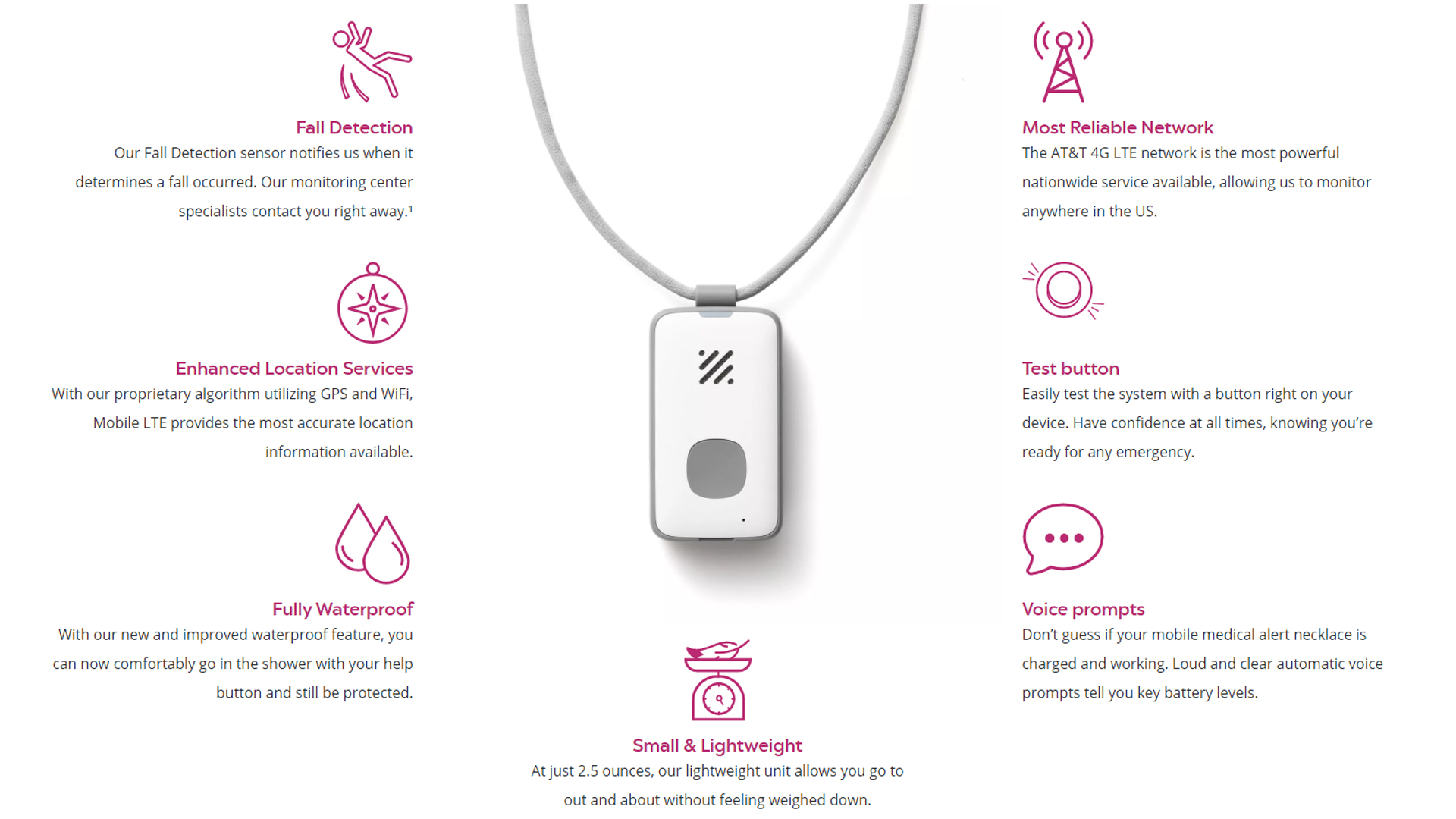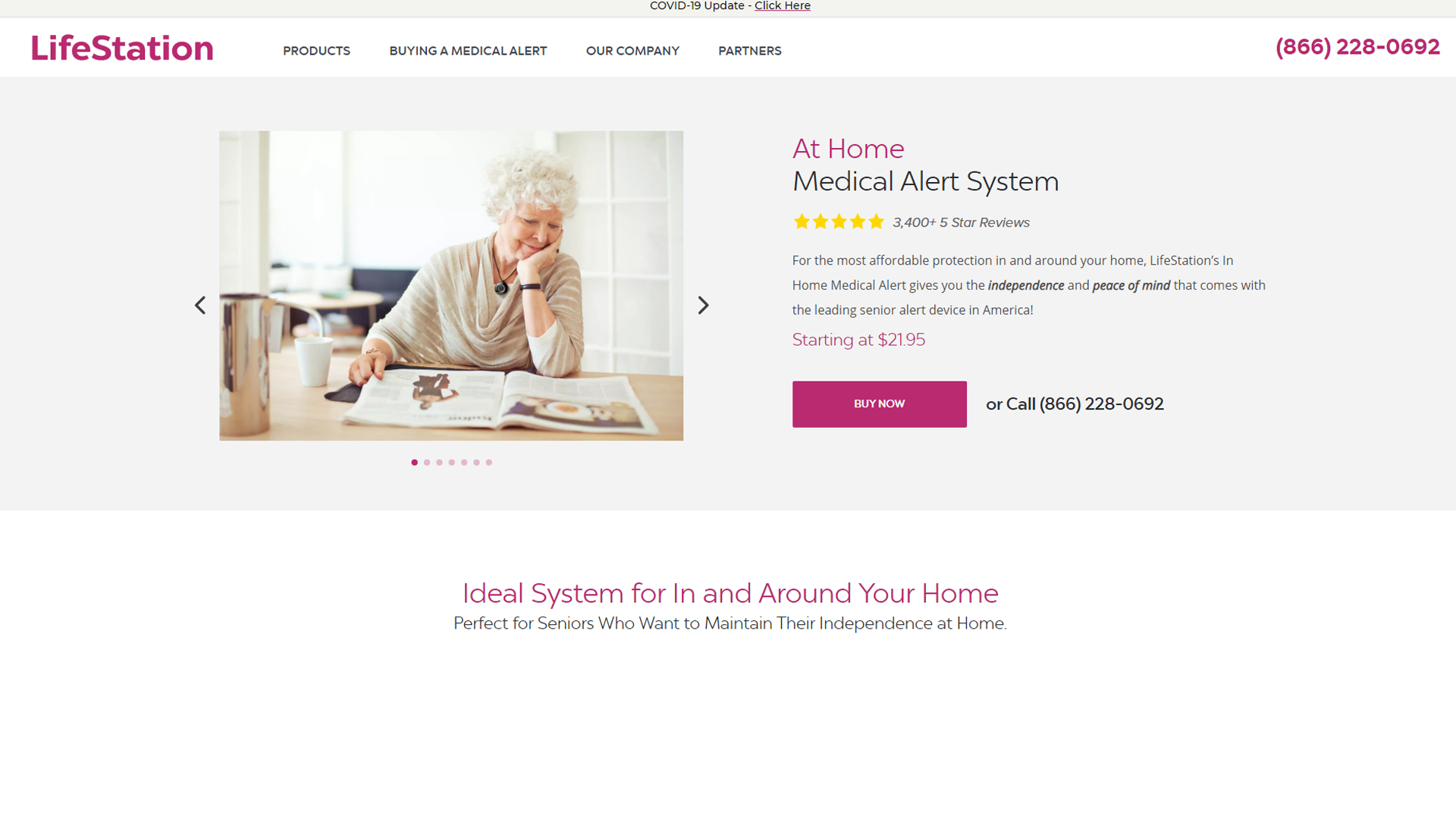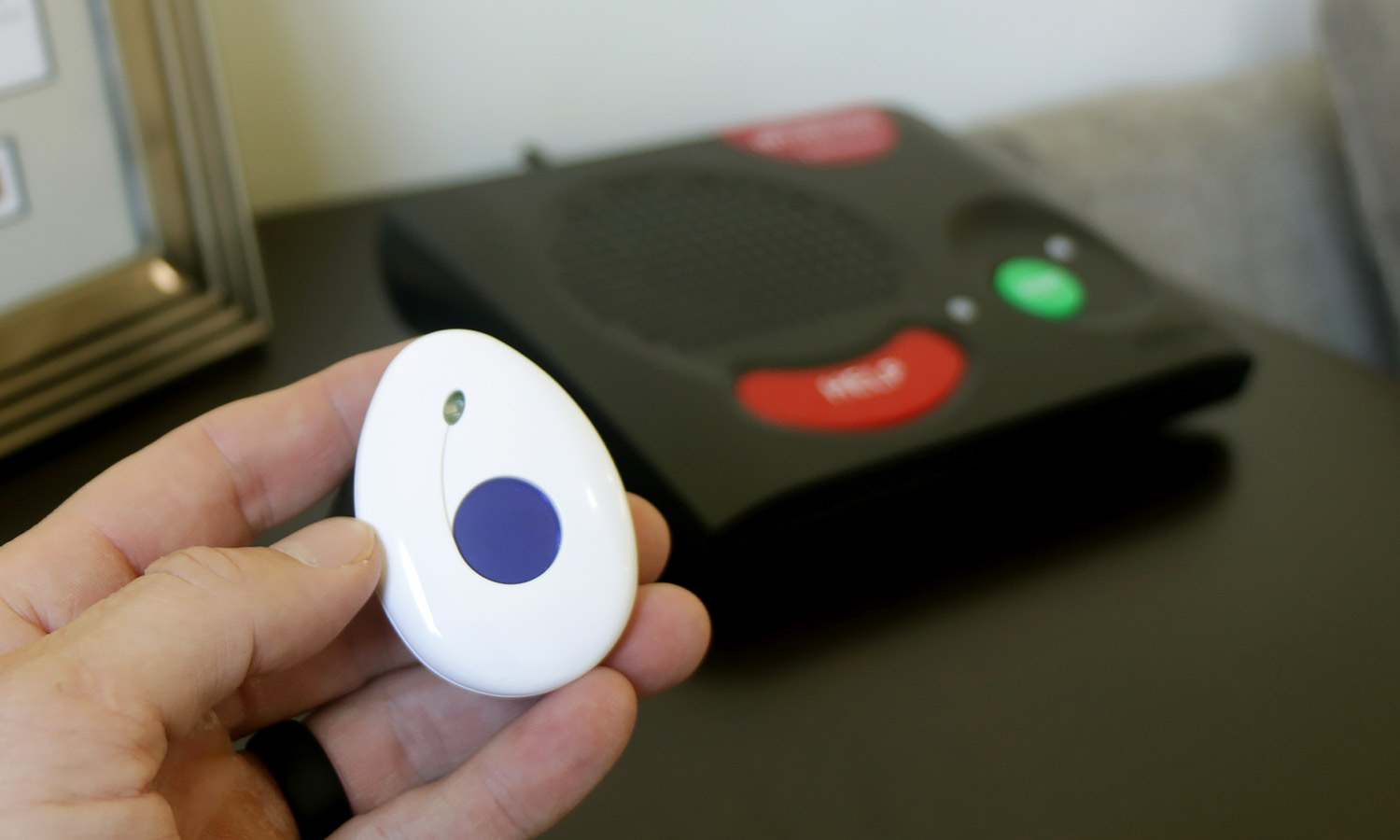TechRadar Verdict
LifeStation is a reputable medical alert company with competitive offerings, albeit at higher costs. While it lacks innovation, it provides a range of plans with transparent pricing, and its emergency response and fall detection pendant are satisfactory. Finally, the 30-day money-back guarantee makes this service easy to try.
Pros
- +
Fast call response time
- +
Good fall detection
- +
Excellent wireless pendant range
- +
Month long trial
Cons
- -
Not value priced
- -
Low-quality speakerphone
Why you can trust TechRadar
For nearly four decades, LifeStation has been delivering essential safety services, aiming to enhance the safety and independence of seniors while providing greater peace of mind to their loved ones. As one of the leading providers of medical alert systems in the United States, LifeStation has established a solid reputation in the industry.
LifeStation: Medical alert systems
LifeStation offers a variety of features across its different plans and devices, but some of the core functionalities include:
Core Features:
24/7 Emergency Monitoring: This is the heart of LifeStation's service. Upon pressing the help button, you'll be connected to their US-based monitoring center staffed by trained professionals who can assess the situation and dispatch help if needed.
Nationwide Cellular Coverage: LifeStation utilizes reliable cellular networks to ensure connectivity throughout the US, even in remote areas.
Two-Way Communication: Speak directly with the monitoring center through the help button, allowing for clear communication of your situation and needs.
Sign up to the TechRadar Pro newsletter to get all the top news, opinion, features and guidance your business needs to succeed!
Fall Detection (Optional): This feature uses advanced technology to automatically detect falls and trigger an emergency response if you're unable to call for help yourself.
GPS Location Tracking (Mobile Devices): Helps pinpoint your location for faster emergency response, especially helpful for mobile help buttons worn outside the home.
Water Resistance: Most LifeStation devices are water-resistant, allowing for use in various environments like bathrooms or near sinks.
Long Battery Life: Devices are designed to last for extended periods without needing recharge, providing peace of mind during power outages or extended use.
Voice Prompts: Audio cues inform you about battery levels, system status, and provide confirmation when pressing the help button.

Additional Features (Depending on Plan and Device):
Lockbox: Securely store medication or valuables and grant access to emergency personnel through a PIN code.
Smartwatch Features (Sidekick Smart): Track heart rate, steps, and receive additional health insights alongside emergency alert functionality.
Alexa Integration: Use voice commands through compatible Alexa devices to request help or check system status.
It's important to note that specific features may vary depending on the chosen plan and device. Always refer to LifeStation's website or consult with their representatives for detailed information on features included in each option.
During our testing in an apartment complex with numerous walls, the pendant demonstrated an exceptional range, with an average reach of 117 feet. This surpassed most medical alert systems, which typically maxed out at approximately 75 feet. While it fell short of the specified range of 1,200 feet under ideal conditions, it was still one of the longest ranges among the systems we evaluated. With a range of 117 feet, it effectively covers large apartments and houses, eliminating concerns about signal obstruction by walls or furniture.
Despite its relatively better performance compared to other pendants, the fall detection pendant still had limitations. None of the tested pendants performed exceptionally well. Common complaints among seniors revealed that the sensors were either too sensitive, triggering constant false alerts, or insensitive, failing to recognize actual falls. While LifeStation's pendant excelled at detecting genuine falls, it still generated some false alerts. Additionally, there was a noticeable delay of 25 to 30 seconds between a fall occurring and the device calling for help, which could be improved for more immediate assistance.
LifeStation: Emergency response center
During the initial three-week daily tests, LifeStation achieved an average call response time of approximately 47 seconds. This performance placed LifeStation among the top three fastest response times recorded during the test, despite being considerably slower than GreatCall's average time of 20 seconds. However, in the subsequent three-week testing period, LifeStation's call response time regressed to an average of around 52 seconds. While still above average, this decline in performance was disappointing as we had anticipated improvement.

One significant drawback of the monitoring center was the subpar call quality. The audio quality of the in-home system was extremely poor, and we could only effectively evaluate calls made on the mobile medical alert device due to its superior audio quality. However, even with the mobile device, we often encountered difficulties understanding the operators. They either spoke too rapidly or had strong regional accents that hindered effective communication. Furthermore, the operators frequently sounded disinterested and bored, which was particularly noticeable compared to other services we reviewed. While none of the calls were severely problematic, their quality was generally inferior to most other services we assessed.
LifeStation: Pricing
Previously, we criticized this company for the lack of upfront pricing, however things have improved now. From the website, we can report that LifeStation offers three main pricing plans, each with additional options and add-ons you can choose from:
1. In-Home Systems:
Standard: Starts at $34.95 per month. Includes 24/7 monitoring, one help button, and a cellular-connected base unit.
Select: $31.95 per month on top of the Standard plan. Adds LifeStation's protection plan, which covers accidental damage and malfunction of the equipment.
Supreme: $14 per month on top of the Select plan. Includes everything in the Select plan plus a PIN-protected lock box for medication or valuables.

2. Sidekick (Mobile Help Button):
Standard: Starts at $39.95 per month. Includes 24/7 monitoring, a mobile help button with GPS location tracking, and fall detection (optional for an additional fee).
Select: $4 per month on top of the Standard plan. Adds LifeStation's protection plan for the mobile help button.
3. Sidekick Smart (Wearable Help Button):
Standard: Starts at $46.95 per month. Includes 24/7 monitoring, a smartwatch-style help button with fall detection, and GPS location tracking.
Also keep in mind that all plans come with a 30-day money-back guarantee, and there are no long-term contracts required. Also some plans require a one-time activation fee of $99.95, and also a shipping fee of $12.50. There is also the option for additional help buttons on the wrist or neck pendant for an extra fee per month, and fall detection is an optional add-on on some plans.
LifeStation: Support
If you need to get in touch with LifeStation, you can call LifeStation’s experienced customer service team at (800) 998-2400; the hours of operation are not specified. While we always appreciate direct phone support, we did not find any other options, such as a chat, email or support portal.
There are also some limited self support options. These include an installation guide, and a FAQ.

LifeStation: Final Verdict
Despite being one of the biggest and oldest medical alert companies, LifeStation doesn’t do enough to push the market forward. It offers nothing that you can’t get from other medical alert services for better prices. However, we do appreciate the choice of plans, and the move for transparent pricing. Overall, the emergency call response times were good and the fall detection pendant was decent. We also appreciate the 30 day money back guarantee.
We've also listed the best medical alert with GPS tracking, and the best medical alert smartwatch.
Jonas P. DeMuro is a freelance reviewer covering wireless networking hardware.
